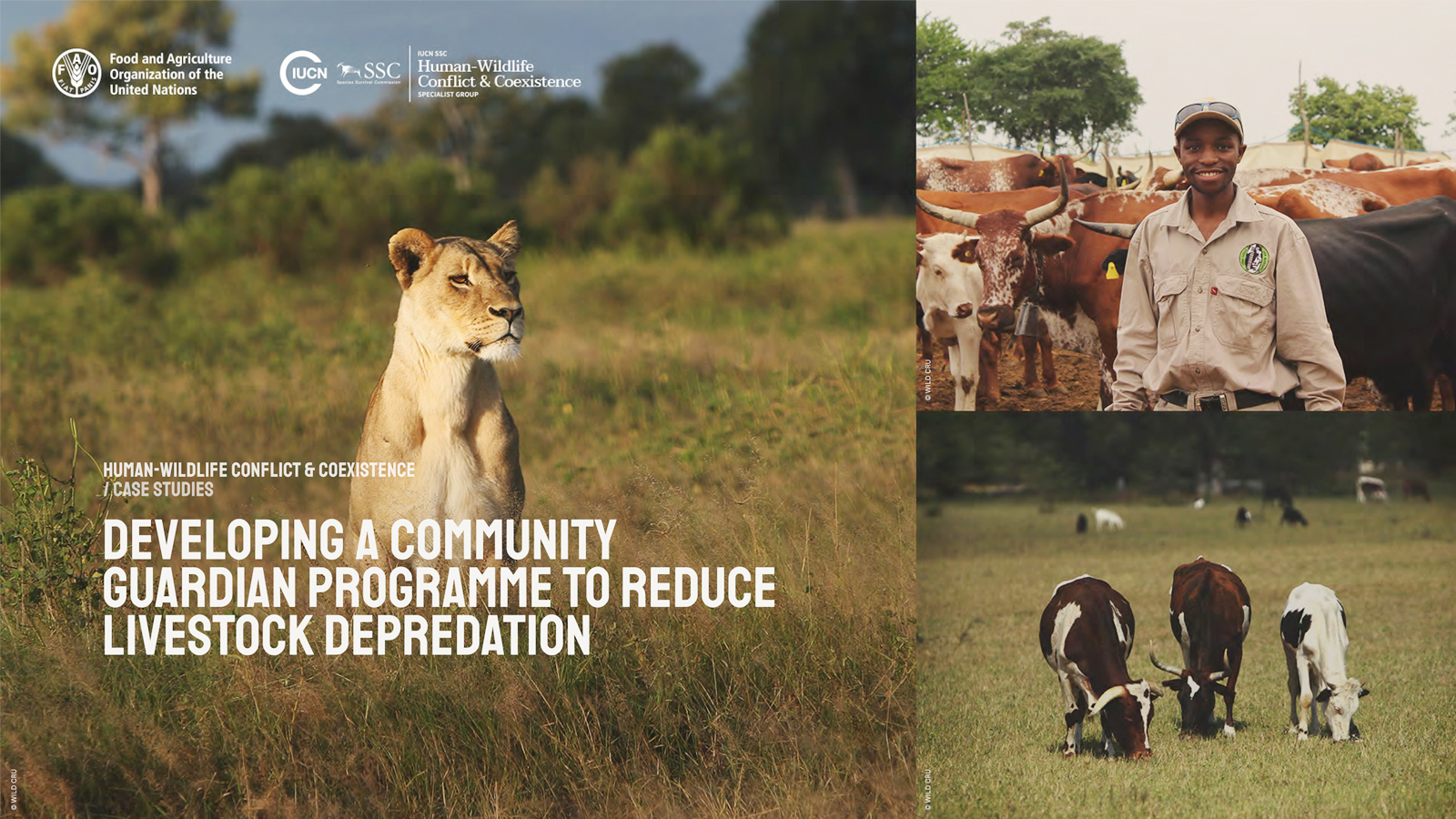News
Addressing human-wildlife conflict: Lessons learned from a community lion guardian programme
WildCRU’s Trans-Kalahari Predator Programme (TKPP) is the focus of the latest IUCN SSC Human-Wildlife Conflict & Coexistence Specialist Group case study, produced in collaboration with the Food and Agriculture Organisation. This series of publications aims to highlight both what is being done and most importantly, HOW it is being done – sharing important insight into the process that projects have taken to understand, plan and address various aspects of human-wildlife conflict. The ten case studies published to date also outline lessons learnt and provide valuable information on ways of addressing human-wildlife conflict, relevant for other species, contexts and locations.
TKPP was founded in 1999 in Zimbabwe, originally operating as Hwange Lion Research, undertaking research on large predators, their management, conservation and interactions with people. The programme has since expanded into Botswana. Research from the programme contributes to impact across the wider Kavango-Zambezi Conservation Area (KAZA) and informs conservation management strategies throughout lion range in Africa. In Zimbabwe, TKPP monitors lions across a 5000 square kilometre area and works to address human-lion conflict in three regions surrounding Hwange National Park. This park is one of the largest protected areas in KAZA, and forms part of the Kavango-Hwange lion conservation unit – one of the last lion population strongholds in Africa.
TKPP’s research revealed that lions and hyaenas are the species most commonly responsible for livestock predation – which occurs especially when animals are not inside protective enclosures at night. Investigations into community perspectives and approaches to the situation informed a collaborative process to design and implement solutions. This gave rise to the Long Shields Lion Guardian Programme (LSLGP), launched in 2013 and involving 42 villages, whereby selected community members conduct patrols, collect information on livestock predation, record wildlife sightings, monitor and chase lions away from communal lands, attend conflict incidents, help recover lost livestock and provide help advice and training on livestock protection. Given the challenges of livestock protection at night, TKPP also implemented the use of mobile communal bomas to deter predators.
Following establishment of the Lion Guardians initiative, livestock losses were halved, and significantly fewer lions were killed in retaliation. 91 percent of farmers involved in the programme felt that livestock protection had improved, however people continue to be worried about the dangers lions pose to people and their domestic animals, so there is still much work to be done.
Read the full case study here and browse previous case studies here: https://www.hwctf.org/case-studies – including features on WildCRU’s Lion Landscapes and Andean Great Bear projects.










